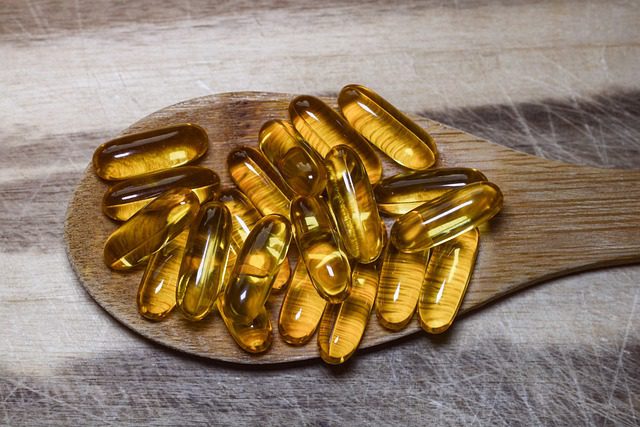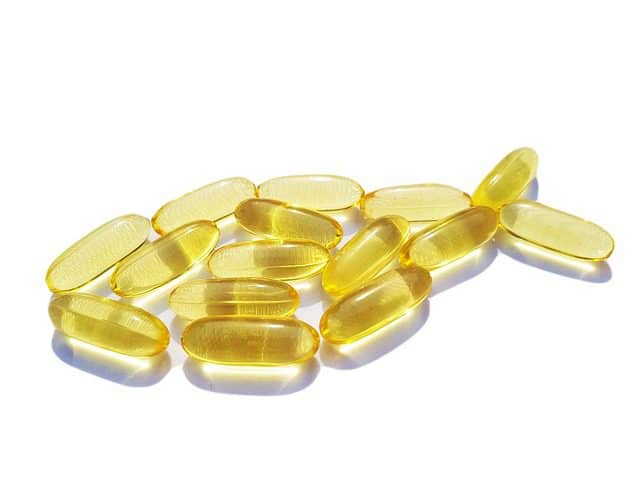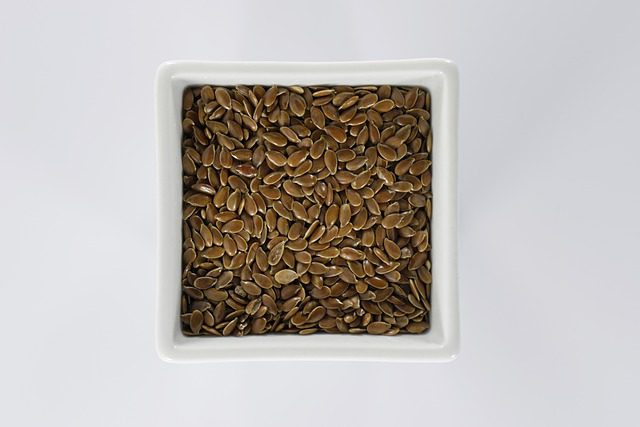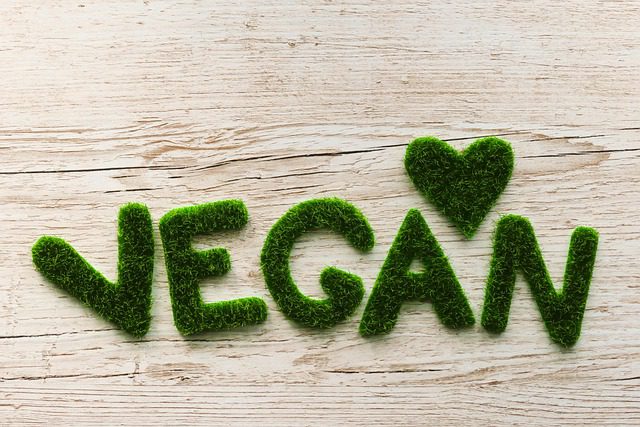Why Do Vegans Need to Supplement with DHA?
There are many health benefits that come along with living a vegan lifestyle. Plants provide a wide variety of micronutrients that we all need to survive and help our bodies perform optimally. With that being said, while vegans get their nutrients from plant-based foods, there is one particular nutrient that many vegans seem to be deficient in — DHA (Docosahexaenoic Acid). For that reason, a large percentage of vegans need to supplement with DHA.
Related Article: Should You Try a Vegan Diet?
What is DHA?
We all need sources of healthy fat in our diet as it plays a vital role in energy production, cellular growth, helping with the absorption of certain nutrients, the production of certain hormones, as well as the ability to aid in protecting your organs. Essentially, every tissue, organ, and cell in our body demands DHA.

DHA is considered a polyunsaturated long-chain omega-3 fatty acid. Everyone can benefit from including adequate amounts of DHA in their diet, from the very young all the way up to the elderly. DHA plays a critical structural role in the brain, eyes (specifically the retina), and cardiac tissue.
Related Article: What Your Brain NEEDS Now — Don’t Neglect DHA!
The National Institutes of Health (NIH) recommends that adults should take in around 215 mg/d of DHA daily.
Vegans who supplement with DHA can:
- Decrease inflammation
- Reduce the risk of heart disease and other diseases and cancers
- Improve the health of the brain and eyes
- Support muscle recovery
- Aid in proper circulation
- Lower blood pressure
- Boost male fertility
What Are Some Sources of DHA?
Many foods contain a fair amount of DHA, such as eggs, mussels, oysters, clams, tuna, anchovies, halibut, salmon, cod, beef, lamb, poultry, and algae, to name a few.
If you’re a vegan reading that list, you’re probably questioning how you’re supposed to get adequate amounts of DHA when just about every source listed, other than algae, is not something you eat.

Unfortunately, vegans’ only means of consuming fat is through nuts, seeds, or oils, and most of the time, those sources aren’t enough to provide their daily recommended intake of fat since they don’t consume those foods in a large enough quantity. Not to mention, those sources do not contain a direct source of DHA. Because of this, vegans can very easily become deficient.
It’s for that reason that vegans need to supplement with DHA, which can come in the form of very specific and concentrated algae supplements.
Vegans Need to Supplement with DHA — But the Source Is Interesting
While there is much talk about consuming fish to take in sufficient amounts of DHA in your diet, there is a caveat. The DHA itself isn’t technically coming from the fish. The fish is simply the carrier. So, what provides the DHA from the fish people consume? It’s actually the algae that the fish eat from their environment (water source). Yes, the plants you commonly see on top of bodies of water.
The fact that the algae are the carrier of DHA should be music to the ears of vegans as it’s the most nutrient-dense sustainable food on the planet. Many DHA supplements are being produced using algae that have been farmed without destroying the environment and inhumanly killing animals.
Not only does algae provide a source of DHA, but it also contains many essential nutrients that our bodies need to function and perform optimally. Vegans need to supplement with DHA, and algae seems like the perfect superfood and resource to do just that.
Algae vs. Fish Oil
Many people have commonly seen, heard, and understand what fish oil is, but the word “algae” can cause them to raise an eyebrow. Algae are the plants that you commonly see living in and on top of bodies of water. They live off of sunlight and are a vital source for marine life and all animals living in bodies of water such as streams, lakes, and oceans.
Related Article: How Can Wild Alaskan Fish Oil Improve Your Health & Physique?
An interesting fact is that algae are the most nutrient-dense sustainable food on the planet. Algae can be grown and harvested without destroying the environment, using valuable resources, or inhumanely killing animals. The process of growing algae can be done relatively quickly in as little as a few weeks, whereas with fish farms, it could take two years or more before fish (such as salmon) are mature.
The interesting part about the debate between algae and fish oil DHA sources is that they are essentially the same. Regardless of whether you use algae as a primary source of DHA or you use fish oil, both stem from algae as the fish eat the algae, which then provides the fish with the healthy fats they are known for.

Which source of omega-3s you choose ultimately comes down to personal preference, but regardless, vegans need to supplement with DHA so they do not become deficient from not consuming foods (like fish) that are higher in omega-3s, which brings us back to algae-derived sources.
A recent study was published that looked to see if algae was a viable alternative to fish oil, and the researchers highlighted the fact that:
- Vegetarians and vegans had significantly lower levels of DHA compared with omnivores
- Algae significantly improved DHA levels in vegetarians and vegans
- DHA from algae was accumulated more than DHA from fish oil
While both algae and fish oil contain DHA, algae possess some incredibly important benefits when put head to head with fish oil. Those who utilize a fish oil supplement often find they suffer from fish burps, loose stools, bad breath, nausea, and even heartburn. When supplementing with algae, such effects are not experienced.
What About Flax for Vegans?
Go to any nutritional store, and you’ll find flax is being promoted to the vegan community for omega-3s, but that might not be 100% accurate. Many vegans and vegetarians reach for this popular ingredient as a viable source of omega-3 fatty acids since vegans do not consume anything that uses fish. The issue with flax not being a great choice for omega-3s and DHA arises during the actual conversion process. Flaxseed oil is a plant-based omega-3 supplement that contains and is rich in ALA (alpha-linolenic acid).

While being rich in ALA, it still needs to be converted into DHA. Therein lies the issue. Only around 10% of flaxseed oil can be converted into DHA, and it is unable to raise plasma DHA levels in vegans. You might be asking what happens with the other 90%, then? Our body actually takes the fatty acids and uses them as an energy source or metabolizes them in other ways.
While there’s nothing wrong with still supplementing with a flax product, as it has its own set of health benefits, it is not ideal from a DHA standpoint due to the poor conversion rates. You would still want to look for a higher quality/higher potency DHA supplement, such as something algae-derived.
Why Algae Is the Future
For the longest time, fish oil was the “go-to” source for taking in omega-3s and DHA. Then came along krill oil which was supposed to alleviate some of the sustainability and environmental issues from harvesting fish. Now, conservationists are looking at krill and noticing the same sustainability issues that they noted with fish. What solution and alternative did they find? Algae.
Algae is an incredible superfood and the future of ecological nutrition as it contains many essential nutrients our bodies need. Not to mention, algae can be produced in as little as 3-6 weeks.
Not only does algae-derived DHA help prevent the inhumane killing of animals, but conservationists are also finding that cutting out the middleman (fish and krill) to get DHA only made sense and that going straight to the source was the best option. Therefore, algae farming was created where algae can be grown on farms and yield extremely sustainable DHA. This also helped preserve the shrinking fish and krill population due to overfishing.
If you were to look at the true purity between supplements such as algae grown in a controlled environment (a farm) and fish oil that comes directly from harvested fish, the algae-derived DHA supplement would be free from toxins that can be present in the fish that were harvested to make fish oil.
A major reason why consumers are turned off by fish oil is due to the taste, which the use of algae can alleviate and has been found to cause fewer taste complaints. Consider all of this, and it’s no wonder why algae are being so heavily researched and utilized to create a plant-based DHA source.
In the end, algae have the ability to change the way we live, the way we look, the way we feel, and the way we view the planet and its resources.
*As with any supplement, it is recommended that you speak with your doctor before introducing any new supplements into your regimen to ensure that they will not interact with any medications you currently use and make sure the new supplement is right for you based on your individual needs.


*Disclosure: This article may contain affiliate links or ads, which means we earn a small commission at no extra cost to you if you make a purchase through these links. These commissions help support the operation and maintenance of our website, allowing us to continue producing free valuable content. Your support is genuinely appreciated, whether you choose to use our links or not. Thank you for being a part of our community and enjoying our content.
PLEASE CONSIDER SHARING THIS ON YOUR SOCIAL MEDIA TO HELP OTHERS LEARN MORE ABOUT THIS TOPIC. SIMPLY CLICK BELOW!

